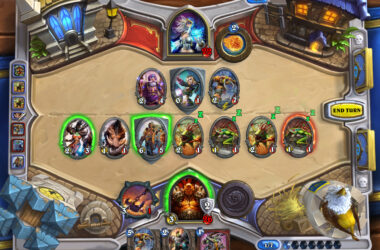Video games are a hit-driven business. While there are certainly a class of games—Fortnite, Counter-strike, League of Legends—that persist for years and even decades, the vast majority of video games go through a development → launch → content/patch updates process, with successful titles marked for sequels and spinoffs down the line. Some games are designed to be grand 100-hour plus adventures; others are happy to provide a tight 2-hour experience to the credits screen. By and large, games follow a defined launch and primary sales window, with their value discounted over time as old games are eclipsed by newer ones.
Game development has also gotten more expensive over time, so over the years, studios have employed a number of strategies to derisk increasingly costly projects1:
- Keep churning out sequels, banking on recognizable names and characters
- Add on multiplayer modes to keep players from reselling their games, though most feel tacked-on and half-baked
- Offer in-game items for real dollars
- Add Downloadable Content (DLC) that is playable, essentially reusing the game engine as addendums to the main game
- Set up in-game economies where activities are gated by payment
Gaming platforms have one additional business model: the platform subscription. The common comparison is building a “Netflix for Games,” where the platform can charge its users a monthly fee for unlimited access to their catalog of games2. To that end, Microsoft has been running its Xbox Game Pass service for a few years now, Sony just updated theirs to mirror Game Pass but slightly-worse, and Nintendo upgraded their online service so they can charge more to emulate classic titles. Even the miniature retro console Playdate has set up multiple seasons of games, intending for players to buy into a season’s worth of content regularly.
The comparisons is meant to highlight the business strategy to enable this type of subscription work for gaming, in the same way that the nut for movies and TV shows was cracked. Video game development, though, has taken longer with correspondingly higher costs, and has now surpassed the budgetary norms of the movie industry3. Accordingly, the price of games—inclusive of the DLC and microtransactions and other add-ons that are now typical of blockbuster releases—has continued to go up, which means that there are fewer big-budget blockbusters and their releases are longer in-between.
Much like streaming video services then, subscription gaming services are also affected by major launches to spike subscriber counts, with smaller titles sown in throughout the year to convince folks to not cancel their memberships, plus generous discounts for pre-purchasing 6 months to a year’s worth of access. That said, games are also notorious for last-minute delays, and when tentpole releases have to deviate from the service’s set schedule, it’s enough reason for people to pause their subscriptions. Spread out the marquee games too thin, and it becomes cheaper to just buy the popular games outright, especially when gaming’s hit-based business model results in major sales only a couple months after the initial launch.
It’s pretty hard to apply subscriptions to video games in the year 20224. In addition to all the difficulties listed above, the coup de grâce is that gamers are simply a cheap and fickle bunch. Even Netflix, probably the most sophisticated consumer subscription product in the world, reported subscriber losses recently—which prompted questions on whether subscription fatigue is setting in, particularly around areas like consumer entertainment.
Not everything needs to be a subscription.
In rough chronological order, albeit from my own gaming memories.↩
Ignoring the ancient part of Netflix that still sends physical discs to its subscribers, although there’s actually a gaming analog to that service—Gamefly.↩
To be fair, the revenues from games has also eclipsed cinema.↩
There was a time in the 90s and 2000s when a bunch of MMORPGs came out and charged monthly fees; that entire genre has had to convert a free-to-play business model.↩



